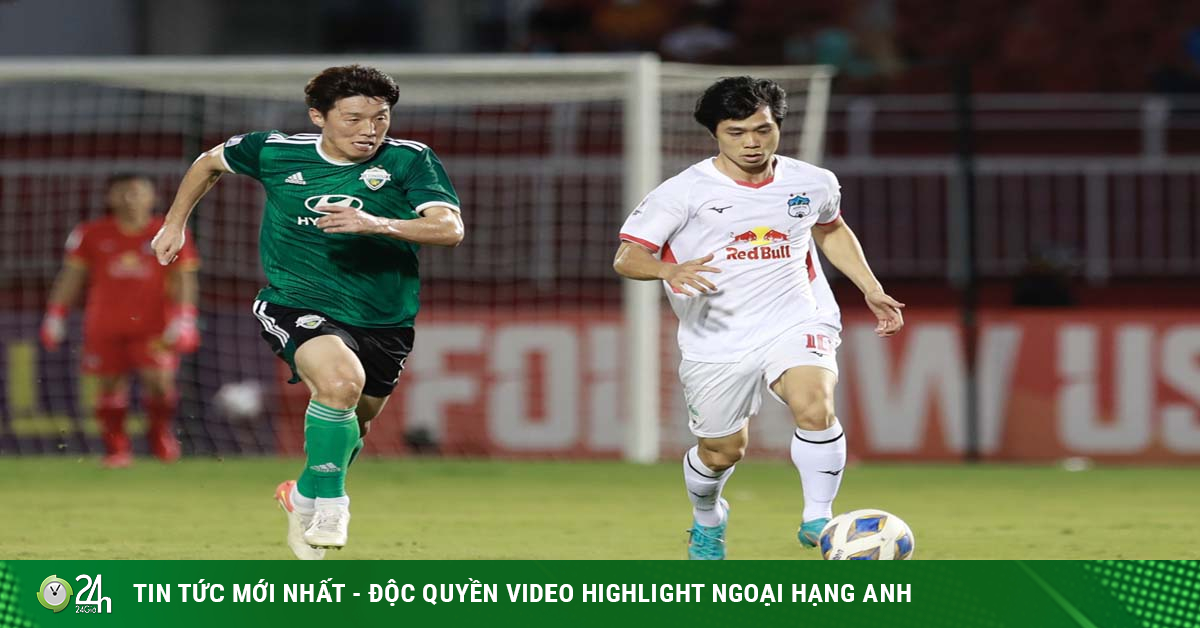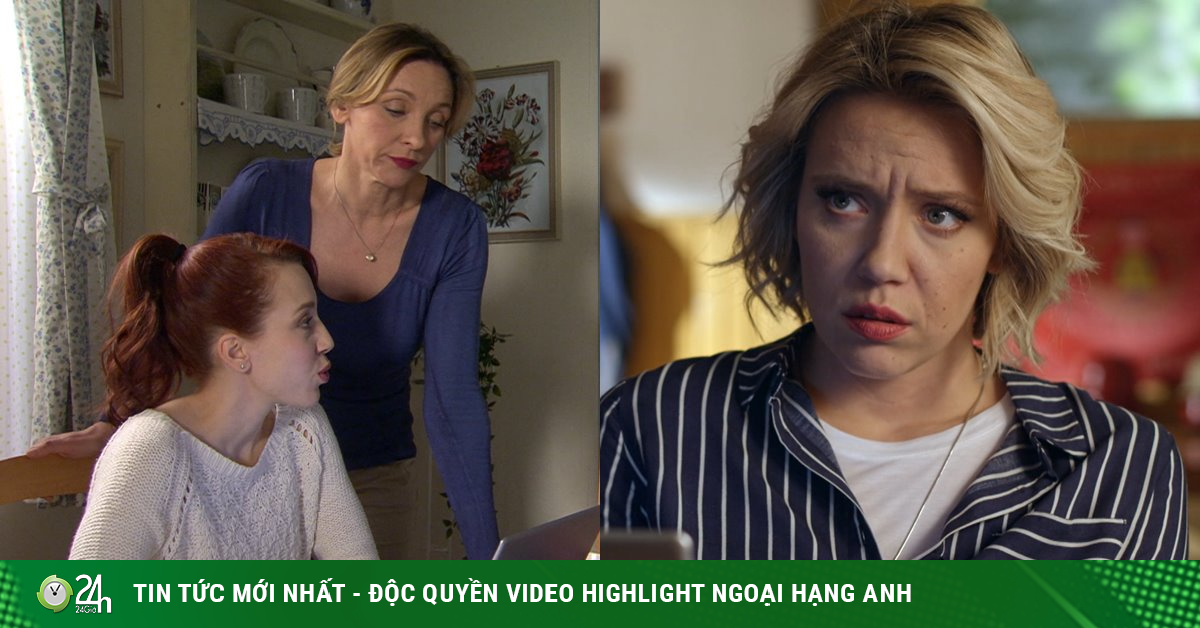However, in recent years, the infection rate of Japanese encephalitis in children over 5 years old is still increasing and accounts for more than 90% of the total cases. Do parents still misunderstand about vaccination?
Basic injections in the first 3 years of life are sufficient
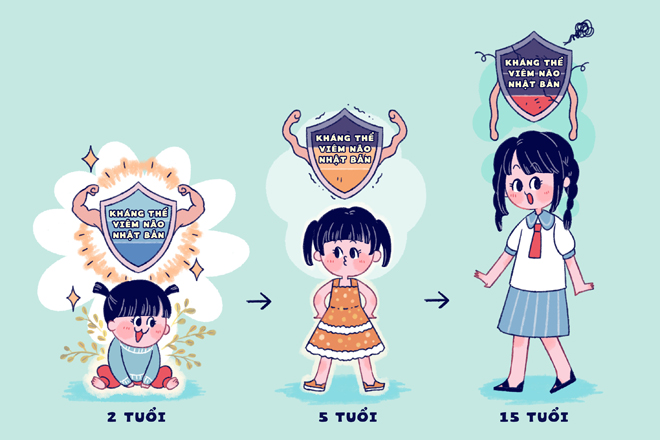
Due to the severe consequences brought by Japanese encephalitis, Vietnam’s Ministry of Health recommends immunizing all children under the age of 15 with a vaccine that is provided free of charge under the National Programme. However, the vaccines used in the expanded vaccination program are inactivated vaccines and the antibodies at the first injection will decrease over time, while Vietnam is still an encephalitis endemic area. Japan and children are still at risk of exposure to the pathogen. In addition to being vaccinated on time and in full doses in the first years of life, children need to be provided with a comprehensive and long-term “shield” with booster injections every 3 years until the age of 15 for inactivated vaccines as recommended by the Ministry of Health.
Unpopular, unattractive!
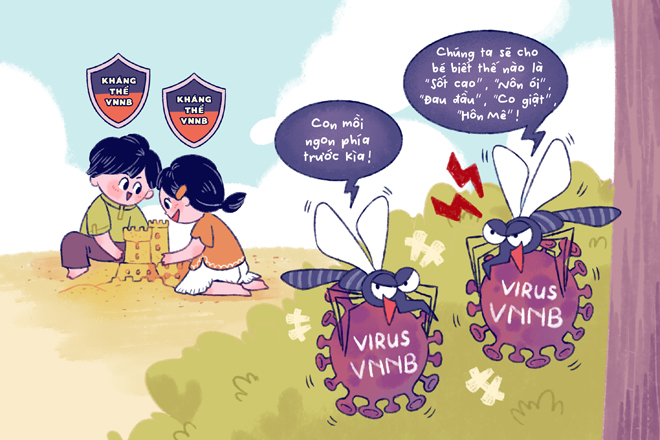
Failure to fully vaccinate children stems from lack of vigilance because there are no cases of Japanese encephalitis in the vicinity. This inadvertently exposes young children to a higher risk of disease if not prevented immediately. Although the number of cases has now been greatly reduced thanks to preventive vaccines, it is a life-threatening disease and can leave many neurological and motor sequelae. These sequelae can have a negative impact on the future development of the child, so parents should not be subjective with Japanese encephalitis, especially when Vietnam is still an endemic area.
Data show that the incidence of Japanese encephalitis in children is higher than in adults, especially in children under 15 years of age, and the disease can leave permanent neurologic sequelae with high rates of up to 50%.
For children who have been vaccinated with an inactivated vaccine made from mouse brains in an expanded vaccination program and in service settings, the Vietnamese Ministry of Health recommends that mothers continue to take their children for booster injections every 3 years until the age of 15. year. . Children as young as 5 years old are enough to get the first booster dose of this vaccine. Additional note for parents as there are now many Japanese encephalitis vaccines in use. For children born after 2019 who have a new generation of live attenuated recombinant vaccine in the service line, children who receive 2 doses of this vaccine will have sufficient long-term immunity and will not need to be repeated.
This disease only occurs in rural areas
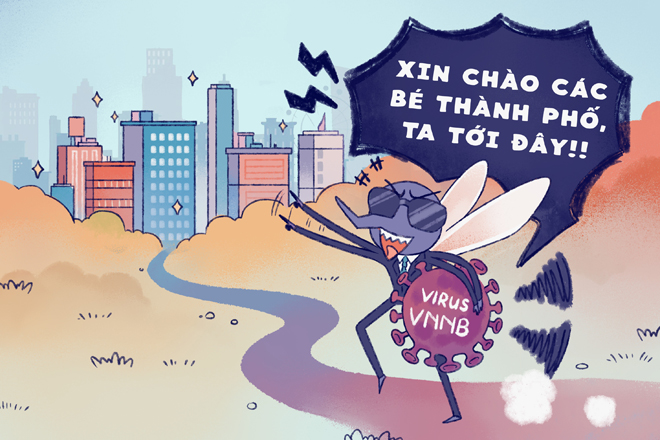
Mosquitoes that cause Japanese encephalitis are commonly found in rice fields or rural areas. However, now climate change is allowing mosquitoes to fly into urban areas and even many cases of Japanese encephalitis have been recorded in areas where there is no rice cultivation or livestock rearing. In addition, Vietnam’s hot and humid climate is ideal for mosquitoes to breed, thereby increasing their ability to transmit disease to humans. Urban areas and other areas are still at risk of infection if children are not protected by antibodies. At the same time, in the process of living and growing, children may have the opportunity to go to high-risk areas for Japanese encephalitis. Therefore, both in rural and urban areas, adequate immunization of children to prevent disease is always important.
It’s not too late to slowly inject!
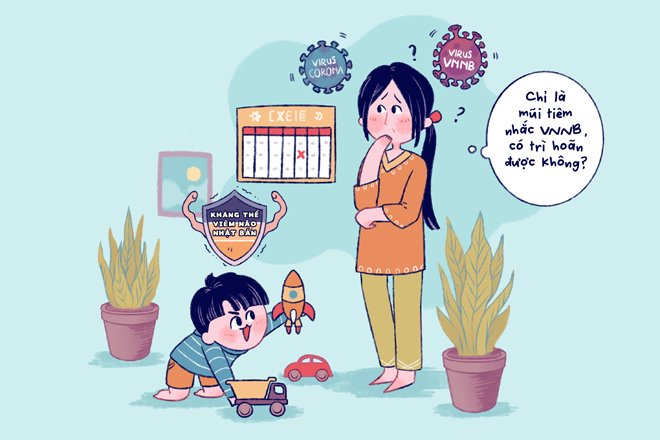
With the mentality of mothers often thinking that booster vaccination can be done at any age, causing delays and delays in vaccinating their children, especially during the last epidemic period, the rate of booster vaccination is decreasing in centers, centers and medical facilities. If the injection schedule is too long, antibodies will decrease, leading to a higher risk of disease.
Not only that, at the pre-school stage, children often come into contact with the community, explore and discover, danger can be anywhere. So don’t miss the reminder shots to make your child’s development journey complete and happy.
Don’t trade misunderstandings and delays for parental regret. Please remind children about the Japanese encephalitis vaccine for children over 5 years old as recommended by the Ministry of Health to protect children in the long term and grow up healthy.
This content is part of a public health education program, jointly implemented by the Vietnam Association of Preventive Medicine and the Sanofi Vietnam Company.
at Blogtuan.info – Source: Eva.vn – Read the original article here

